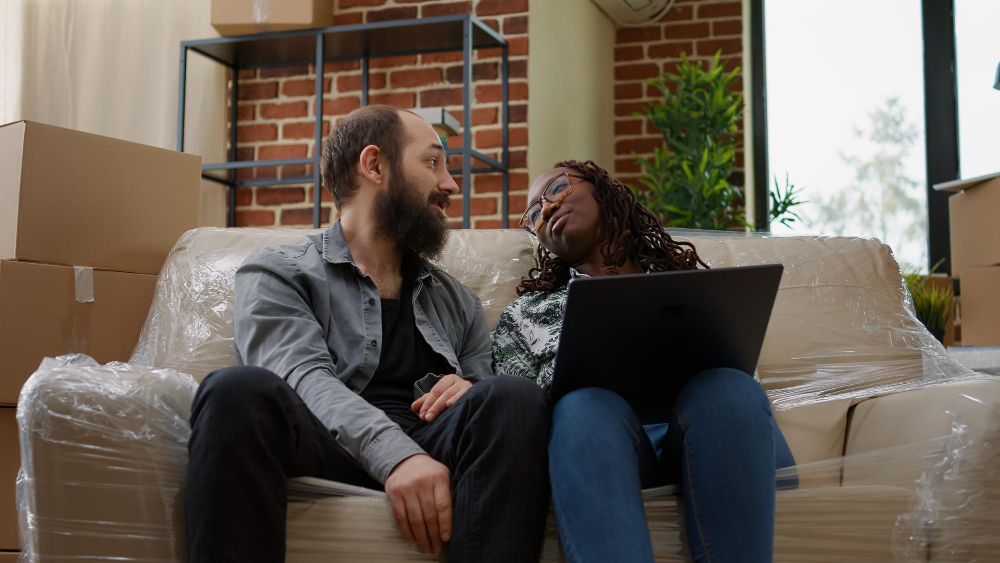The Dutch housing market has seen some significant changes over the past year. What does this mean for current hopeful homeowners — and what does it mean for 2023?
We were tired of these questions running around in our heads, so we decided to tackle them.
What do the current lower house prices mean for hopeful home buyers?
If you’re anything like us, your ears probably perked up at the recent news that Dutch house prices are continuing to cool off.
However, when it comes to housing news, it’s sometimes hard to hear good news and not question it — so we did.
According to the experts, it’s good news, if prices go down even a little, it’s more advantageous for buyers. However, they don’t know if they will drop as low as we saw in 2008.

What we’re seeing is that there are fewer people showing up for house viewings, and while there was a real bidding war in 2021, from what the experts have seen, overbidding is almost gone.
READ MORE | Good news! Buying a Dutch house may no longer be a distant dream for young people
A reduction in overbidding will certainly help hopeful homeowners pay slightly less for their dream home — and this is a trend that is set to continue. As of January of this year, estate agents have announced that they will be more transparent during the bidding process.
How will rising mortgage interest rates affect Dutch mortgages?
In 2022, the Netherlands saw its record-low mortgage interest rates rise again to rates as high as 4.5%. The result? Many people are wondering how this will affect future mortgages.
It’s important to understand that in the Netherlands, mortgage interest is factored in when calculating your borrowing power. The higher the interest, the less money you can set aside for the actual buying of the house.
However, higher interest rates aren’t all bad news when it comes to your mortgage. In fact, mortgage interest can be deducted from your gross income — meaning that you actually save a bit of money when tax season rolls around.
Why? The higher the interest rate, the higher the amount that you can deduct from your gross income.

While rates have indeed risen this past year, it doesn’t look like they will rise any further. While, indeed, mortgage interest rates tripled in 2022, the current Dutch mortgage interest rates are still very attractive when compared to interest rates in other countries.
Rates of 4.5% on the long-term market are really below average, so they are still an attractive interest rate. Internationals find 4.5% not that high; it isn’t as high as in many of their countries.
READ MORE | 8 steps to getting a mortgage and buying a house in the Netherlands for expats
Moral of the story, Dutch mortgage interest rates have risen — and there are both advantages and disadvantages for Dutch home buyers. That being said, relatively speaking, mortgage interest rates in the Netherlands are still quite favourable!
How will the extra €75,000 from the Dutch government help mortgage applicants?
In 2022, the Dutch minister for housing, Hugo de Jonge, announced that the Dutch government would soon help those with middle incomes (between €40,000 and €60,000 a year) to buy a home.
How? By introducing a housing subsidy of up to €75,000, which buyers can put towards their offer on a house.
However, the implications of this subsidy are not so simple. First of all, the subsidy is not set in stone. Mortgage advisors make a calculation based on the hopeful buyers’ income. So while someone’s income may make them eligible for the subsidy, the question still remains: are they eligible for the mortgage?
While receiving a subsidy of €75,000 sounds great, it’s important to realise that, as the Dutch say, we’re “taking a cigar from our own box.”
Recipients of this subsidy must repay this amount back to the Dutch government when they decide to sell their home. In fact, if you make a profit on the sale, part of this profit will also have to go back to the Dutch government.
What do you see happening for the current generation of home buyers?
We asked the burning question: what about us? — ehh, we mean, all the people who are dreaming of having a home in the Netherlands at some point.
The answer to this question depends on how the current housing shortage in the Netherlands will continue to develop. The Netherlands currently has a shortage of houses. It needs about 350,000 houses to tackle it. If nothing is done, this will rise to a million.

While Hugo de Jonge has announced that the Netherlands plans to tackle this shortage by building 900,000 extra houses by 2031, the execution of this plan may prove to be difficult.
READ MORE | Just stack em! Dutch government wants to build new houses on top of old ones
However, for internationals, there’s still some opportunity to be found in the Dutch housing crisis. Why? Well, turns out the Dutch housing crisis isn’t the worst one out there. In fact, it could even be described as favourable.
On average, expats have well-paid jobs, have more in savings, and many of them compare the Netherlands to even more expensive homelands. Houses in Amsterdam are not as expensive as houses in Paris, for example.
What will the nitrogen crisis and the energy crisis mean for housing?
The nitrogen and energy crisis has affected almost every aspect of life in the Netherlands, including housing.
Due to factors such as increased costs for building materials, permit issues, and a personnel shortage, the building of new houses has faced a lot of disruption this year.

The energy crisis has also led to a new trend in Dutch housing. With the cost of heating your home being quite expensive at the moment, future homeowners are looking for sustainable measures in their potential homes.
READ MORE | Buying an old vs. new house in the Netherlands: the key differences
Ultimately, the current energy and nitrogen crisis will affect both future and current homeowners. Future homeowners are going to be looking for houses that are more sustainably made — and current homeowners are going to be renovating their homes to appeal to them.
Is now the time for internationals to buy houses in the Netherlands?
The answer to this question is quite relative. Why? Because it depends on what you consider to be a “bad” housing crisis.

Many internationals in the Netherlands are running from far worse housing crises. As a result, the Netherlands’ house prices are, surprisingly, quite appealing. Yep, that’s right, this is the world we live in, folks!
While internationals are less deterred by the current Dutch housing prices, Dutch buyers are much warier. The result? More housing opportunities for international buyers.
The takeaway is simple, while the Dutch housing market may seem scary, there are still opportunities for internationals — and we need to hold onto that.
How do you feel about the housing market in the Netherlands? Tell us your thoughts in the comments below!
